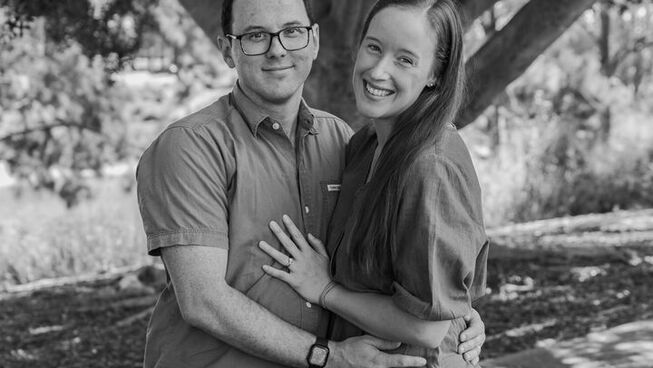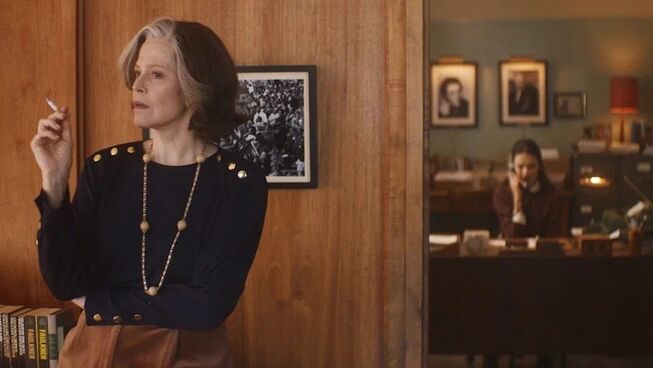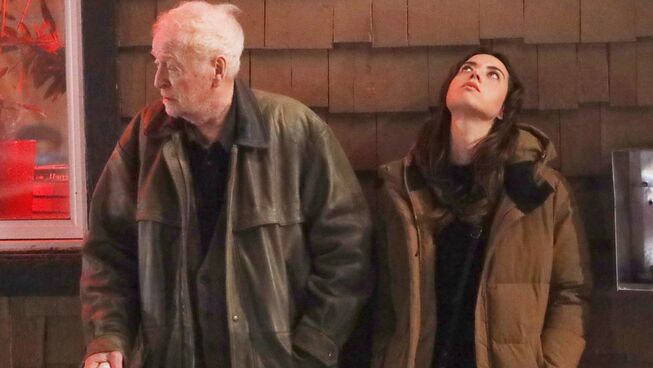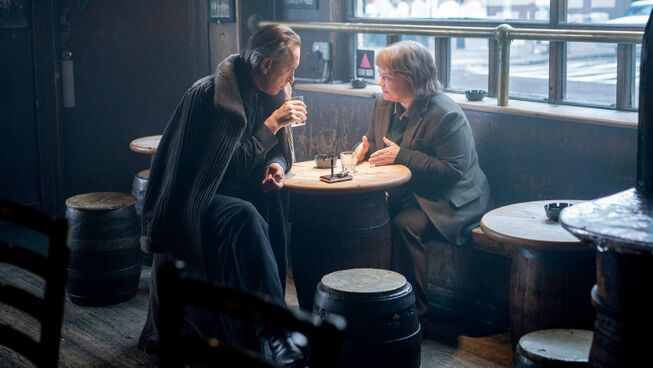
3.5 out of 5 stars
Emily and Charlotte Brontë are literary figures as well as siblings who remain tantalising for filmmakers and historians to explore. The newest production delves into the mysterious life of the second youngest Brontë sister, Emily, the author of the celebrated novel Wuthering Heights. While not many records exist about her life aside from comments made by her older sister, Charlotte (author: Jane Eyre), within her biography written by Elizabeth Gaskell (author: North and South).
Set in Victorian England, this period piece explores Emily Brontë’s (Emma Mackey) discovery of herself. This journey includes her relationship with William Whiteman (Oliver Jackson-Cohen), the new parish curate, which juxtaposes the strict religious rules of Christianity and her life experiences. Inspired by her brother Branwell (Fionn Whitehead), she develops her writing skill; she begins to pen poems and letters to William, who responds in kind. Their secretive relationship provides the vehicle for her discovery of herself and leads to events neither person saw coming.
Emily is the story of a woman who rebels against the stuffy norms of her religious upbringing to find true “freedom in thought”. The production itself has a clear, straightforward, if somewhat predictable, storyline. Indeed, frequent watchers of period drama will be able to predict the upcoming plot points almost perfectly as the film progresses. What Emily suffers from in predictability is more than overcome by the superb acting and casting and by a beautiful film score by Abel Korzeniowski based on the mid-Romantic era of Western Classical Music. Frances O'Connor (The Importance of Being Earnest) makes her directorial debut with this biographical author's sketch, proving that she can act as well as direct.
Uniquely, O’Connor spends a lot of time in extreme close-up camera angles. She uses these camera angles to create a sense of pensiveness and to explore deep feelings. While the close-up shots can be a little unsettling for the audience initially, the young director utilises them well to explore the internal thoughts and emotions of Brontë throughout the film. Indeed, by the conclusion, the viewer almost becomes the narrator through his intimate knowledge of her character. In a story about passion, the camera shots allow the viewers to feel the author’s passion for writing, William Whiteman’s passion for Emily, and provide a vehicle into the thoughts and desires of all the characters.
The artistry behind the camera helps bring to life the film's overall message of freedom in thought. The screenplay encourages the expression of a person’s thoughts. This means that old rules, traditions, and laws can be disposed of if they interfere with the person’s pursuit of finding themselves and their own pleasure. Whilst the film does not espouse outright hedonism, the performances of Emma Mackey (Sex Education) and Oliver Jackson-Cohen (The Invisible Man) provide a robust exploration of two people trying to find themselves in a strict, oppressive society. The film trumpets the success of women finding their voices in a strongly patriarchal society. Unfortunately, the film spends far more time exploring Emily Brontë’s life than exploring her writing. Slight hints of her gifts present themselves, but there was more scope for further reading her writings, particularly her poems. Discerning viewers must also be aware that the film has many mature elements, including nudity, sex scenes, and drug use.
Emily is a modern take on a period drama that explores the tension between tradition and modern thought. This makes the film accessible to mature audiences who love good scripting and period drama.
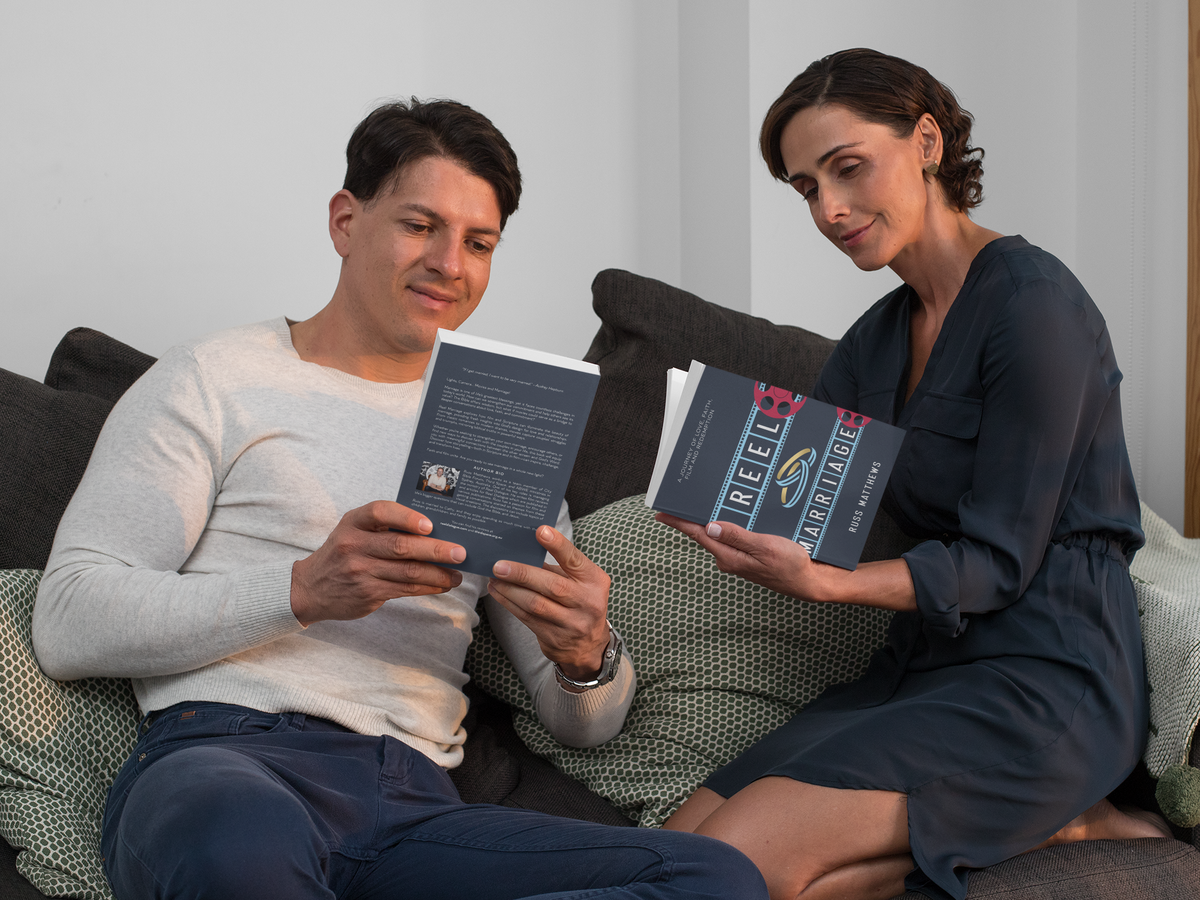
Reel Marriage
Lights, Camera... Movies and Marriage!
Marriage is one of life’s greatest blessings, yet it faces countless challenges in today’s world. How can we strengthen our commitment and help others see its value? The Bible offers wisdom, but what if movies could serve as a bridge to deeper conversations about love, faith, and commitment?
Reel Marriage explores how film and Scripture can illuminate the beauty of marriage, providing fresh insights into God’s design for love and relationships. From classic romances to modern dramas, movies capture couples' struggles and triumphs, mirroring biblical truths in powerful ways.
Faith and film unite. Are you ready to see marriage in a whole new light?
If you order your copy today you will also receive a complementary handbook that is only available with the purchase of the book (Print or ebook)
Reel Dialogue: What is the value of faith?
When people talk about faith, it is usually in a flippant way. “I have faith that you can do it.” It is a belief in a physical person or thing that helps them to anchor their understanding of what the person can do. For some people, faith is a bridge too far because of their life experiences.
Whatever a person thinks of faith, it does not diminish its value. A person exercises faith daily, even in simple things like sitting down on a chair and eating food. Faith believes that the chair will hold, and the food will be cooked. There is evidence to support that faith. At the core of every belief system is faith, whether faith in God (or a god), faith in oneself or simply faith in the collective goodness of humankind.
Faith is one of the core tenets of the Bible, demonstrated time and time again. Faith begins where doubt ends because by faith Bible characters do God’s will. Faith finds things to believe in and evidence to support that belief. What are you believing in today?
“Now faith is the substance of things hoped for the evidence of things not seen.” Hebrews 11:1
